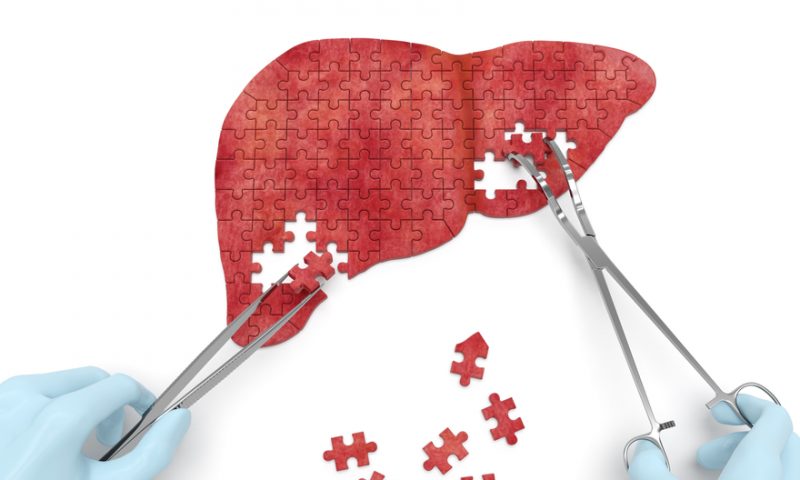Akero Therapeutics has shared more results from a phase 2a trial of its nonalcoholic steatohepatitis (NASH) prospect efruxifermin. The trial found half of biopsied participants experienced a one-stage or greater improvement in fibrosis, prompting Jefferies analysts to hail the data as best in class and sending Akero’s share price soaring.
In March, Akero revealed efruxifermin, a diabetes drug it licensed from Amgen, had beaten placebo in terms of reducing liver fat in NASH patients. The top-line readout hinted at why investors have put $135 million into the biotech over the past two years but left key questions unanswered.
Now, having finished biopsying 40 patients who experienced a 30% relative reduction in liver fat after 12 weeks of treatment with long-acting fibroblast growth factor 21 analog efruxifermin, Akero has the data to start answering those questions.
The biopsies showed 48% of liver fat responders also experienced at least a one-stage improvement in fibrosis. Almost 30% of patients experienced a two-stage or greater improvement. With half of responders achieving NASH resolution and the clinical trial tracking significant changes in body weight, blood glucose and cholesterol, analysts at Jefferies found the overall package compelling.
“Overall, the drug appears to have big benefits on the 2 key problems with NASH that no other drug has shown: (1) improved liver histology and fibrosis, (2) improvements in diabetes parameters and improved lipids, and (3) notable positive weight loss benefits, all in one,” the analysts wrote in a note to investors.
The data drop comes in the wake of updates from companies including Inventiva and Novo Nordisk as well as against the backdrop of the derailing of Intercept Pharmaceuticals’ effort to bring its NASH drug to market.
In the Inventiva trial, 42% of patients who received the higher dose of lanifibranor experienced a one stage or greater improvement in fibrosis without NASH worsening at 24 weeks. A similar proportion of patients who received Novo Nordisk’s semaglutide experienced such an improvement, although that was after 72 weeks of treatment and wasn’t statistically better than placebo. The lack of fibrosis data from placebo patients in the Akero trial is one question mark over the strength of the study.
The Jefferies analysts responded to the data by hiking their per share price target from $31 to $48. Even if the biotech hits its new price target, its market cap will be $1.3 billion, putting it well within reach for a number of deal-hungry companies with aspirations to corner the NASH market.

